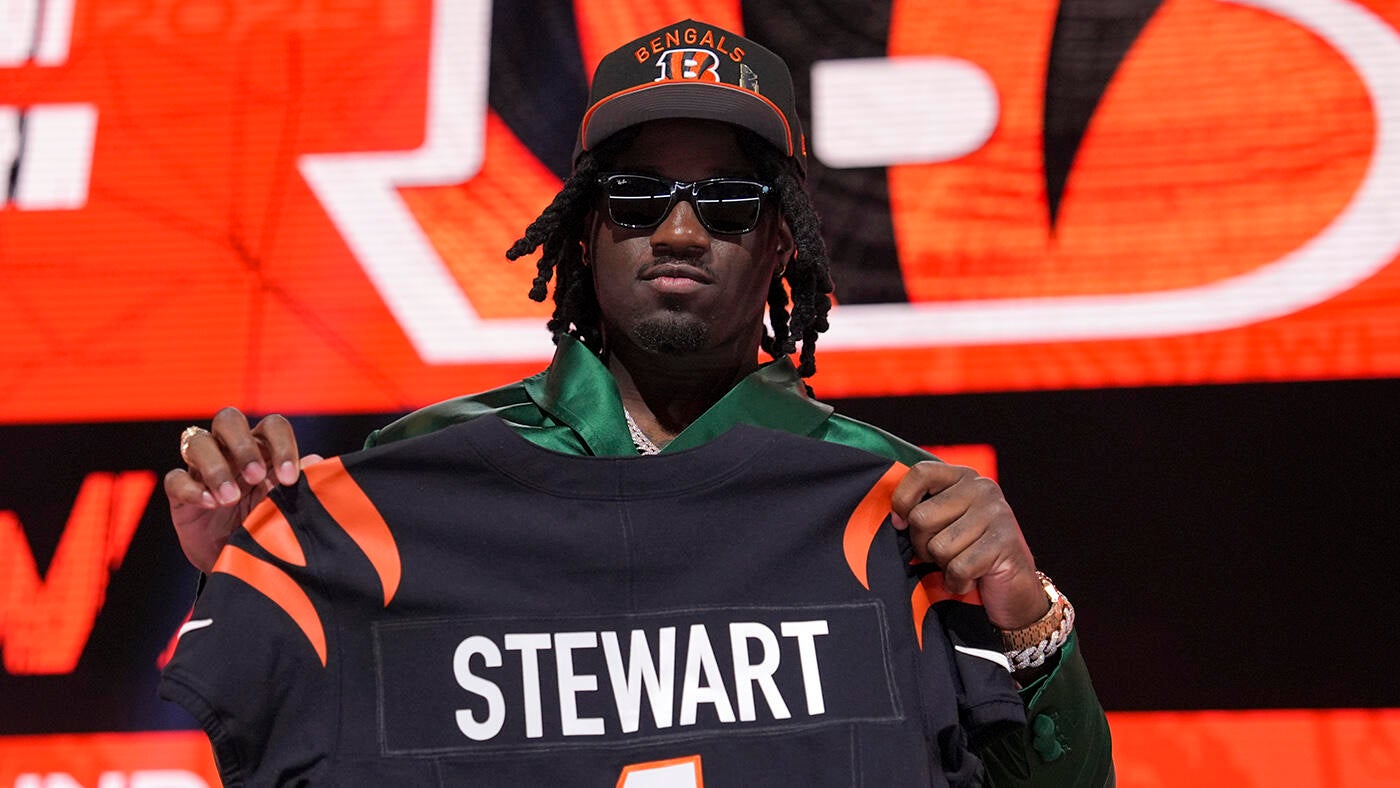
Shemar Stewart’s Contract Standoff Could Shake Up NFL Rookie System
The drama between Shemar Stewart and the Cincinnati Bengals has taken a dramatic turn, and it’s not just a typical rookie contract delay. We’re witnessing what might become one of the most significant standoffs in recent NFL history — and Stewart could use an unusual loophole to completely upend the process.
So here’s the situation: Shemar Stewart, the Bengals’ first-round pick from Texas A&M, still hasn’t signed his rookie deal. He showed up for OTAs but didn’t participate in any drills, and during minicamp, he left after two days without hitting the field. Why? It’s not about money. Everyone already knows the deal — a four-year, $18.94 million contract, fully guaranteed under the NFL’s rookie wage scale. But the Bengals threw in a new clause they hadn’t used with previous top picks: a default clause that allows them to void future guarantees if Stewart gets into trouble — on or off the field.
And that’s where Stewart drew the line. He’s made it clear he won’t accept special treatment that feels more like punishment. In his own words: “I’m not asking for nothing you all have never done before, but in you all case, you all just want to win an argument instead of winning more games.” It’s a strong stance — and he might actually have the leverage to win.
Also Read:- Governor Murphy Tours Devastating Flood Damage in Berkeley Heights
- Trump Strikes Tariff Deal with Indonesia, Opening “New Era” of Trade Access
See, Stewart isn’t your typical rookie. Thanks to NIL (Name, Image, Likeness) deals from his college days at Texas A&M, he isn’t hurting for cash. That changes the entire equation. Most rookies sign quickly just to get that first paycheck. Stewart? He can wait. And if things don’t go his way, he’s got options that could absolutely burn the Bengals.
One option? Sit out this season and re-enter the NFL Draft in 2026. That’s right — if Stewart refuses to sign and doesn’t play a down in 2025, he becomes draft-eligible next year. Any team but the Bengals could select him. It’s outlined in Article 6 of the NFL CBA. Imagine the precedent that sets — players effectively vetoing the team that drafts them. That’s a nuclear move, and it could send shockwaves through the league.
There’s also the trade route. If another team is willing to give Stewart the deal he wants, a trade could go down — but it has to happen before the 30-day deadline ahead of the regular season. However, the Bengals are notorious for digging in, even when it costs them.
And here’s the real curveball: Stewart’s reportedly been seen working out at Texas A&M. Some sources even suggest he could try to return to college and play again in 2025. That would likely lead to a legal fight with the NCAA — but in today’s litigation-heavy sports world, it’s not impossible. NCAA rules technically prevent a drafted player from returning, but Stewart seems ready to challenge the system if it means standing on principle.
The Bengals, meanwhile, are no strangers to slow starts and locker room tension. Star defensive end Trey Hendrickson is already holding out, and now Stewart — the guy expected to be his complementary piece on the line — might not be there, either. That’s bad news for a defense that ranked among the NFL’s worst last season.
Bottom line? This isn’t just a rookie holdout — it’s potentially a landmark moment in how rookie contracts are handled and how much power first-year players can wield. Stewart is testing the system, and if he wins, the ripple effect could be massive. Whether the Bengals blink or he takes the nuclear option, everyone’s watching — because this saga might reshape the future of the NFL Draft.
Read More:

0 Comments